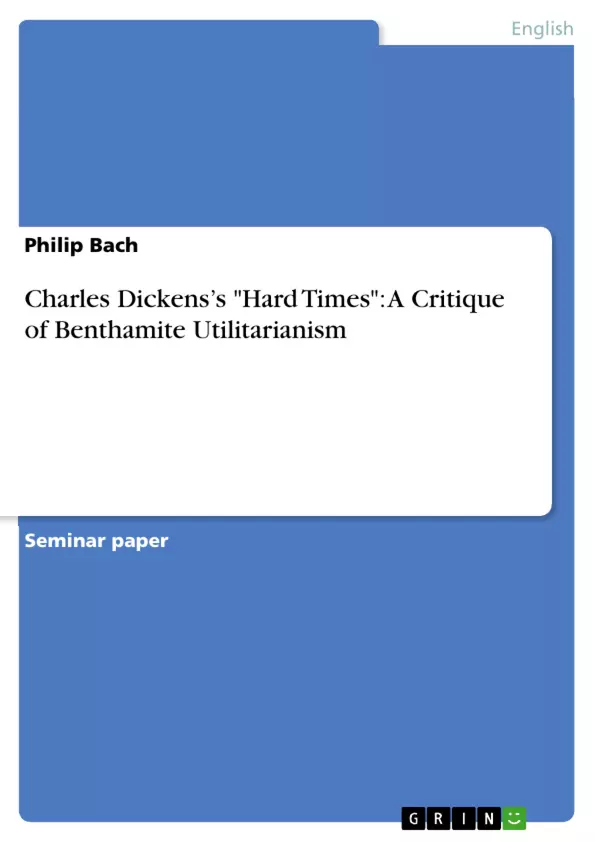Hard Times is arguably Dickens’s most controversially discussed work. It was published in 1854 as a serial in his weekly periodical Household Words. Critics such as F.R. Leavis reprehend his novel for having flat and stereotypical characters that seem to be crude caricatures of reality, whereas others applaud him for his socio-economic critique of 19th century England and his amiable characters. In this paper I will show that Dickens strongly criticizes the utilitarian ideas of Jeremy Bentham and his ideological followers through the characters and the plot as well as the stylistic device of repetition.
Table of Contents
- Introduction
- The Philosophy of Facts
- The Importance of Fancy
- Conclusion
Objectives and Key Themes
This paper analyzes Charles Dickens's Hard Times to demonstrate how the novel critiques the utilitarian ideas of Jeremy Bentham through the characters, plot, and stylistic device of repetition. It explores the novel's central themes and arguments, examining the impact of utilitarian thought on society and the individuals within it.
- The critique of Benthamite Utilitarianism
- The importance of "fancy" and imagination
- The dehumanizing effects of a fact-based education
- The portrayal of industrial society and its impact on individuals
- The use of repetition as a stylistic device
Chapter Summaries
- Introduction: This chapter introduces Dickens's Hard Times, outlining its controversial nature and contrasting interpretations of its characters and themes. It establishes the paper's objective to analyze the novel's critique of utilitarian thought.
- The Philosophy of Facts: This chapter delves into the novel's central theme: the critique of utilitarian philosophy as embodied by Thomas Gradgrind and his obsession with facts. It explores how this philosophy permeates the educational system, the upbringing of children, and the lives of working-class individuals. The chapter also analyzes Dickens's use of titles and the novel's opening paragraphs to illustrate Gradgrind's unwavering adherence to facts.
Keywords
The key terms and focus topics of this paper include: Benthamite Utilitarianism, Hard Times, Charles Dickens, Thomas Gradgrind, fact versus fancy, industrial society, education, repetition, dehumanization.
- Arbeit zitieren
- Philip Bach (Autor:in), 2012, Charles Dickens’s "Hard Times": A Critique of Benthamite Utilitarianism , München, GRIN Verlag, https://www.grin.com/document/208741



